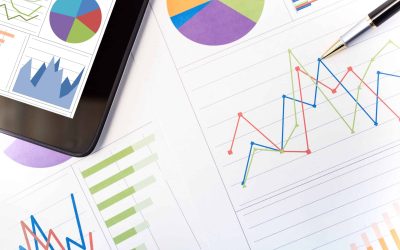Post-COVID Changes That May Prove Beneficial to Businesses
Remote Workforce
A huge percentage of the workforce is working remotely — according to Entrepreneur — up to 42 percent of the workforce working from home or otherwise remotely—the majority of these employees for the first time ever. The opportunities in remote and flexible operations are tremendous may improve staff wellbeing and work-life balance, create more workforce flexibility and efficiency, and give organizations greater access to talent.
Luxury vs. Essential Business or Product
For many retailers, what they offered before COVID-19 may have been seen as simply a luxury… i.e. a new RV for travel or remodeled kitchen for the holidays. According to EY, 25% of consumers who will take advantage of access to certain goods and services they might not otherwise have purchased prior to COVID-19. Fewer hotel stays have led to more RV purchases. Less time in restaurants, the more some may want a new kitchen. The challenge for retailers is assuring that the product is targeted at these consumers and is offered at a price that doesn’t go beyond their risk tolerance.
Reassessing Health Benefits
COVID-19 has brought about proactivity for HR departments to review their policies and take the necessary steps to ensure their employees are supported throughout this turbulent time. Employee well-being is directly tied to business health, which is why many organizations understand the importance and benefit of optimizing their benefits that deliver the right health and wellness offerings for their workers.
It is the new normal?
It’s time to act, not react as we are now entering our 3rd quarter with the pandemic. Finding a realistic sense of optimism — “What should we change?” — is where we may be better to spend our time. Business and financial planning, and technology and digitization are the review of the area.
- Business & Financial Planning
-
- Be willing to change— start business planning not only for 2021 but for 2022 and 2023. Your company should be revisiting its 3-year business plan to learn where it can reinvent itself.
- Financial Plan— The coronavirus outbreak has put many businesses at financial risk. The financial future of your small business may need an expert to help you with a financial game plan.
- Financial advisors— can help you make the necessary mid-course adjustments for next year. At Muhlenkamp, our advisors can serve as a sounding board to help clients talk through their unique situations.
- Adopt Digitization — those small businesses that have adopted, or can quickly adapt to digital tools may strengthen their productivity which may improve their access to finance and markets.
-
- Contactless payments— consumers want to stay safe and this can be seen in the increased usage of e-commerce platforms for convenience and safety.
- Digital finance— COVID-19 has caused advancement in the way many organizations are needing to adapt to digital finance. In a world that is constantly moving forward with advancements in mobile technology, digital finance has only followed suit and therefore has meant that businesses need to become aware of how they operate financially in the future in case they get left behind.
- Robotic Process Automation (RPA)— the software is designed to perform tasks across multiple applications and systems. The opportunities for automation, specifically RPA, are practically infinite. Before COVID, it’s estimated that as much as 80% of manual front-and-back office business processes that could benefit from automation were still undiscovered.
Remember, nobody wins if your business fails, so involve your partners, employees, advisors, and your community… making everyone a part of the solution. With disruption everywhere, we know people miss their old lives. We too are adapting. We would love to talk with you about your financial aspirations and needs. At Muhlenkamp making your money grow is our top priority. The opinions expressed are those of Muhlenkamp and Company and are not intended to be a forecast of future events, a guarantee of future results, nor investment advice.




